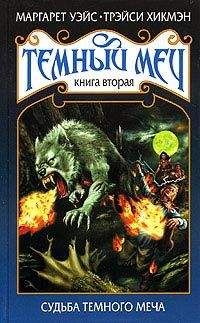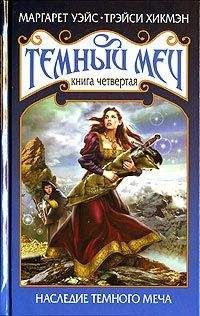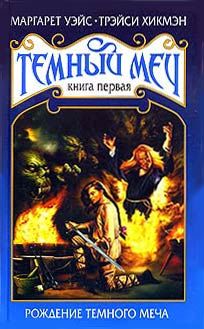E.C Tubb - Spectrum of a Forgotten Sun
Dumarest said, flatly, "How is Dephine? Has she been accepted?"
"By me, certainly, but I have traveled in my youth and know that tolerance is a part of civilized living. Others are less generous, but they will be won over given time and, if the worst should happen, well, she has her champion."
A calm acceptance of his role as if it were the most natural thing in the world which, in this society, it was. Dumarest stepped back towards the window and stared in the direction of the city and the spacefield, fifty miles to the west. A distance which had been covered by a raft in as many minutes. The sun was low, the smokey red of the mottled disc dazzling.
As he turned, blinking, Hendaza said, "Earl, how much did Dephine tell you? You are close to her, I know, the fact that you are her champion proves it. But how deeply did she confide in you?" And then, as if part of a ritual formula, he added, "If my words offend you I apologize. If the apology is insufficient then I am at your disposal."
To participate in a duel, a ritual combat in which right was assumed to triumph. A thing in keeping with the great house with its invisible cobwebs of ancient tradition which insisted on careful attention to minute detail.
"You don't offend me," said Dumarest. "She told me very little."
Little of importance, at least, though much which had to do with promises and what he would expect to find on Emijar. A small trader had finally brought them to her home world, the third vessel they had taken since leaving Shallah, tiresome journeys with tedious breaks as they waited for connections. Days in which they had talked and nights devoted to passion.
"A strange and willful girl," mused Hendaza. "Even when but a child she had a wild streak in her which made her object to discipline. Yet how can civilization survive without a firm basis of rules and customs? Each must know his place and each must maintain both pride and position. Perhaps you have met similar cultures in your travels?"
"Similar," said Dumarest. Static societies doomed to fall apart beneath the impact of new ways, but he said nothing of that. "When will Dephine be fully accepted?"
"After dinner tonight those who wish to object will be given their chance, but it will be a formality I'm sure. What to do now? Some wine? A little exercise? A tour of the House? Come, Earl, let me show you around. There are others you should meet; Lekhard for one, Kanjuk and young Navalok should amuse you." His laughter was a dry rustle of contempt. "We shall find him in the chapel."
* * * * *
It was a dim place filled with shadows, the gloom dispelled at points by the glow of vigil lights. They rested beneath a collection of broken weapons and, in the faint light from the floating wicks, the things seemed to move, to shift as if gripped by unseen hands.
As Dumarest paused in the doorway he saw a thicker clot of shadow, a form which rose from where it knelt, turning to reveal a white and drawn face, a pair of staring, luminous eyes.
"Navalok de Monterale Keturah," said Hendaza with a sneer. "One day, perhaps, he could rule the House-if he ever finds the guts to win his trophy."
The rite to prove his manhood, the beast he would have to kill before he could claim adult status. A barbarism in keeping with all the rest.
Dumarest called, softly, "Navalok? Come and talk to me. Come, boy, I won't hurt you."
"Do you think I am afraid of that?" The boy stepped forward, limping a little, his lips tightly compressed. He was young, barely reaching to Dumarest's shoulder, and thin with a stringy leanness which could result from malnutrition or the long, flat muscles of a natural athlete. In the gloom his eyes were enormous, the starting eyes of a helpless beast which knows that it is trapped and can see no way of escape.
"A wise man is always wary of strangers," said Dumarest. "It is caution, not fear. A thing I learned years ago when I was just a boy. And you, Navalok? How old are you?"
From where he stood Hendaza said, spitefully, "Long past the age when he should have become a man, Earl. He is of my blood but I have to say it. You talk to a coward."
And listen to a fool. Dumarest said, mildly, "Could you leave us, Hendaza? I'd like to look around a little. Navalok can guide me if he agrees."
"He will agree." Hendaza glowered at the boy. "This is Earl Dumarest. An honored guest. You will remember that."
"My lord?" Dumarest waited as Hendaza left them alone. "Will you guide me?"
"Yes, of course, but there is no need of titles."
"From either side," said Dumarest. "Now, what have you to show me?"
Together they walked slowly down the length of the building. The floor was flagged with stone and the sound of the youth's footsteps made a dull resonance from the vaulted roof.
"Tell me about these relics." Dumarest gestured to the items illuminated by the soft glow of the vigil lights. "They are relics, aren't they? Things kept from the past?"
The boy halted before a shattered sword.
"Arbane used this against an olcept ten times his own weight. It ripped his stomach and brought him down but he managed to kill it and return with the trophy before he died."
"And this?"
A broken spear with much the same history. The weapon used by a man who had killed and later died from injuries received while killing. The list lengthened, the young voice rising a little as he warmed with his stories, the names and deeds of those he envied rolling from his tongue.
Brane who had walked on bloodied feet to hurl his trophy before the Shrine. Tromos who had hopped. Kolarz who had crawled. Arnup who had lost an arm and used his teeth and single hand to support his burden. Sirene who with both legs shattered and one eye gone had writhed like a snail leaving a slime of his own blood and intestines.
Tales of blood and suffering, of the will overcoming the limitations of the flesh, a saga of those who had struggled and won the coveted prize and who had died with fame and honor. Men who had wasted their lives to leave nothing but broken weapons and distorted memories, but Dumarest said nothing of that.
"You see, Earl," said the youth, "It isn't enough just to kill. The trophy must be carried back to the Shrine."
"Is that essential for those who hope to rule?"
"Yes. A man must prove himself. Some go after a normal trophy and leave it at the Shrine and are content to rest on their proven courage. Others, especially those in direct descent from the Elder of the House, must gain a trophy accepted by all as one fit for the position they wish to hold. Nothing less than seven times the weight of a man."
Dumarest said, "Can you show me what an olcept looks like?"
The picture gave no indication of size and the colors were too garish to be true, but something of the ferocity of the creature had been captured and set on the pane of painted glass. A long body upheld by four, claw-tipped legs. A knobbed tail. A head consisting mostly of slavering jaw with grasping appendages to either side. Horns which curled like upraised daggers. Fur and scale and spines of bone. A composite of bird and reptile with something of the insect blended with the mammal.
"The dominant life-form of this world when the early settlers arrived," said the boy. "Much blood was spilled and many Families broken before they were beaten back into the mountains. Now they have learned to leave us alone but, at times, they swarm and destroy crops and fields, buildings and beasts in a wave of destruction. Nothing can stop them aside from the massed fire of heavy weapons. Usually all that can be done is to remain safe behind stone."
Dumarest remembered the massive stone walls, the towers and crenelations. It had been no accident that the house had adopted the features of both farm and fortress. "Why aren't they hunted?"
"They are. Their heads provide the trophies." Small beasts relatively easy to kill yet each destroyed made the flock that much less of a hazard. A necessity incorporated into the social structure and used for a double purpose. A triple purpose when it came to deciding the fitness of those aspiring to rule.
The women, of course, would be helped and even given kills to call their own. Then Dumarest remembered Dephine, her savage determination, her almost feral heat in anger and love. Such a woman would scorn such aid and she could not be alone. Here the females were equal to their men. "And the Shrine?"
It lay behind the chapel, an echoing chamber flagged with blocks of red and yellow, lights glowing like stars on the marble walls, small points gathered thickly before the arched opening and the inner chamber. Within it rested a slab of polished obsidian the surface cluttered with a variety of objects; a book, some instruments, a chronometer, the injector of an engine, the plastic leaves of a record-file, a spool of thread, a jeweled toy, a dozen other items.
"From the First Families," said Navalok reverently. "Each placed here some object of personal value and, by these things, they are remembered. Each House, of course, has its Shrine, for all hold the Firsts in veneration. As we hold those of us who sit in the Hall of Dreams."
Ancestor-worship coupled with a primitive rite of puberty added to the rigid traditions and codes of a ritualised way of existence. Once of value for the culture to survive, perhaps now a lead weight dragging it to oblivion.
"You sit in the chapel," said Dumarest. "And you pray for strength, the ability to be like those you respect and admire. The heroes whose weapons you guard and whose exploits you remember. Yes?"
"Of course, Earl."
"Why?"
Navalok frowned. "I don't understand. I am weak and you must have noticed the way I drag my foot. An accident when I was a child, but it has left me deformed. How can I hope to gain a trophy without the help of those best suited to give it?"
"They are dead, Navalok." Dumarest was patient, the conditioning of a lifetime could not be eliminated by a few words. And to deride would be to arouse a reactive antagonism. "They are dead," he said again. "All of them."
"But they gained their triumph."
"And died doing it. Is that much of a success? Wouldn't the achievement be greater had they returned unscathed to hurl their trophies before the Shrine?" Dumarest smiled as he posed the question, his voice deliberately casual. "In my experience the man who remains unscarred after a fight is the one to be feared, not the one displaying his lack of skill."
For a moment, watching the play of emotion over the young face, he thought that he had gone too far too fast. Only a fool could have missed the implication and no one likes to be told that his heroes were stupid rather than brave. Then, as Navalok opened his mouth to reply the air shook to the deep and solemn note of a bell.
"The curfew," he explained. "The gates are now closed and the House sealed for the night. Soon it will be time for dinner, Earl. It would be best for us to part now and get ready."
* * * * *
Dinner was held in the great hall and was obviously the high point of the day. Dumarest joined the throng of guests standing before the tall, double-doors, his grey tunic in sharp contrast to the others adorned as they were with a plentitude of badges. Even the women wore similar symbols, stars fixed to sashes draped over one shoulder and, like the men, they were armed.
"Earl!" Hendaza came bustling through the assembly two others at his heels. "Allow me to introduce you to those whom I mentioned. Earl Dumarest, Lekhard de Monterale. Lekhard, this is-"
"I know who he is." The man smiled with a twist of his thin lips. Young, arrogant, he radiated an aura of self-assurance. His tunic was a blaze of ornamented badges. "We both know, eh, Kanjuk?"
Hendaza said, stiffly, "I take offense at your attitude, Lekhard."
"So you take offense." The man shrugged. "If you want satisfaction it can be arranged. The usual place when the bell tolls at dawn?"
"No." His companion, a tall man with a smooth face and enigmatic eyes, rested a gemmed hand on the other's sleeve. Like Hendaza he was of middle-age. "This is no cause for a quarrel, Lekhard. You were rude to interrupt and Hendaza was right to remind you of your lack of manners. We do not want our guest to think we are barbarians."
"Does it matter what a stranger thinks?" Lekhard's eyes roved over Dumarest's plain tunic, halted at his weaponless belt, dropped to stare at the hilt of the knife thrust into his boot.
"Yes, my friend, Dumarest is armed." Kanjuk smiled as if at a private jest. "You were slow to notice that. Now that you can accept him as an equal we can act like civilized men. You have visited many worlds, Earl?"
"I have."
"And seen many cultures, no doubt. Have you met other societies like our own?"
"As yet I have seen little of it."
"And so have no evidence on which to judge. Well, time will cure that. I would like-" He broke off as trumpets sounded from the doors which now swung open. "It is time we went in to dinner. Later I would appreciate the chance of resuming this conversation. Lekhard! To me!"
Kanjuk raised a hand as he moved off into the throng now streaming through the opened doors. At his side Hendaza said, "Head for the upper tables, Earl. You sit next to Dephine. As her champion it is your right."
She smiled as he took his place, reaching across the space between them to touch his arm, gemmed fire winking from her fingers. She was resplendent in a gown of embroidered fabric, the sash draped over her shoulder bright with badges, the pistol at her belt resting in a holster of gilded leather.
"You are happy, Earl?"
"I am here. Just what I am supposed to be doing is something else."
"You are my champion." Her fingers gently scratched the back of his hand. "With all that implies. But don't let appearances deceive you. On Emijar men can smile as they murder and murder as they smile."
Dumarest shrugged away his hand from beneath her nails, not bothering to probe her meaning. Instead he studied the great hall and the assembly it contained. All the Family, it seemed, had come to welcome Dephine. They sat at long, narrow tables set on the stone floor, each loaded with a variety of foods and wines. At the lower end of the hall, separated a little from the others, were the tables occupied by those who had yet to win their trophy. Social inferiors not as yet regarded as having the right to an opinion.
Navalok was among them, his face sombre as he picked at his food.
Dumarest reached for a fruit with a golden rind and lifted it from where it rested on a mat of leaves. The skin broke beneath his fingers to release a flood of sickly sweet juice. The flesh was tart, slightly acid, dissolving to a chewable mass of fiber.
At his side a man said, "So far no challenges, but there is time yet before the final bell."
"You expect one?"
"I? No, but who can tell what is in other minds?" The man sipped a little wine. "If any should come Alorcene will do his best to negate them. Dephine was always his favorite."
"Alorcene?"
"Keeper of the Scrolls." The man gestured towards the highest table. "Ah, there he is. I thought he wouldn't leave it much longer."
The sharp note of a bell sounded above the hum of conversation and, as silence fell, an old man lifted his hand.
"According to ancient tradition and with the will of those who guide the destiny of this noble House let all listen and pay heed. To this place has returned the Lady Dephine de Monterale Keturah. Of those present do any deny her right to remain? To rejoin the Family? To resume her rightful place among us? If so speak that all may hear."




